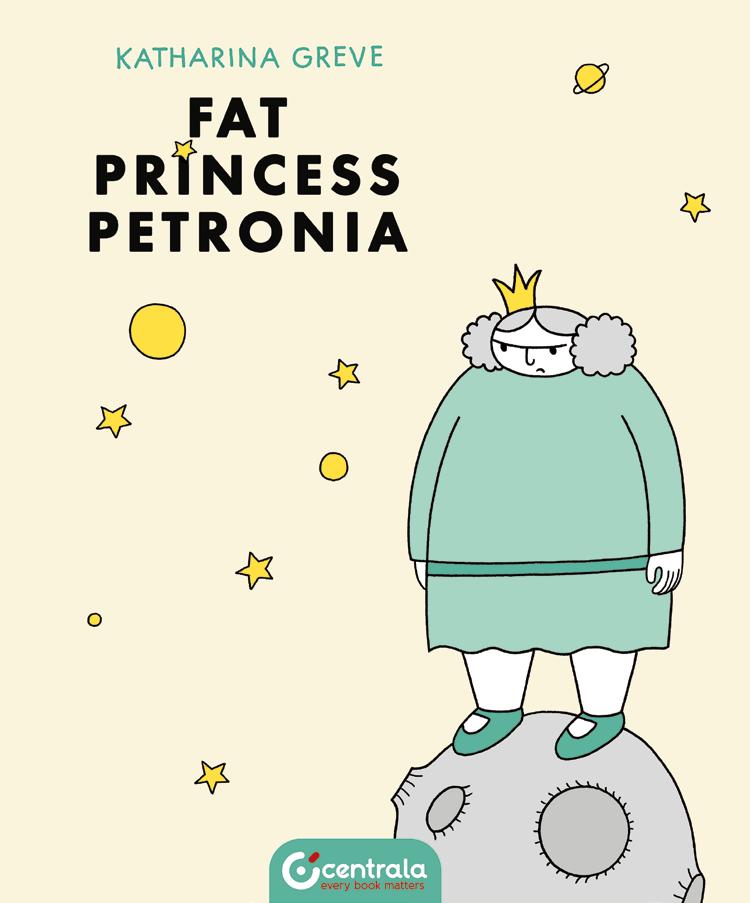
5 minute read
The Sisters Dietl _ Vojtěch Mašek _ p. 41 _ Katharina GreveFat Princess Petronia
by Centrala
Fat Princess Petronia
Katharina Greve
Advertisement
The whole universe worships the Little Prince, who sees everything ‚with his heart’ – but no one pays any attention to his cousin, Fat Princess Petronia. In contrast to the angelic blond boy, she’s sullen and completely unsentimental. She just doesn’t fit the princess cliché at all: She hates pink frills and loves maths. Naturally, the Little Prince has a huge planet while Petronia is stuck on probably the tiniest and most boring planet in the whole wide universe. With the help of multi-purpose worm Mirco, she tries to pep up her dismal life by travelling the cosmos by wormhole or by attempting to meet David Bowie – usually without success.
Petronia’s absurd and funny adventures draw on the themes of The Little Prince, fairy tales, science fiction and the classics like Faust. The imagery is also packed full of allusions: Sometimes the art looks like advertising, sometimes like a board game or even like a modelling sheet.
Greve’s space comic skilfully parodies various science fiction classics such as The Hitchhiker’s Guide to the Galaxy, Star Trek, Alien and the notion of parallel worlds in the multi-verse. Greve succeeds in depicting her title character’s emotional world with just a few strokes.
Holger Moose Goethe Institut

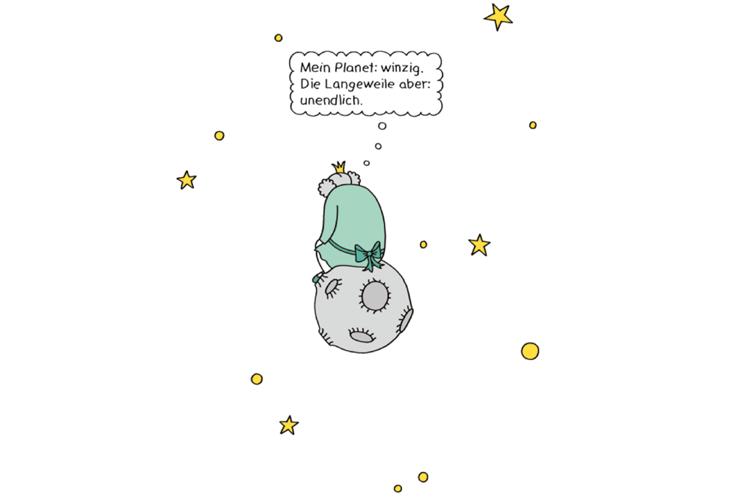


Katharina Greve, born 1972 in Hamburg, studied architecture at the Technical University, Berlin. An artist, writer, cartoonist and comic strip creator, she lives in Berlin. In addition to drawing cartoon and comic strips for Titanic, Das Magazin, Taz, Neues Deutschland, Der Tagesspiegel etc., Greve has published several graphic novels. In 2010, she received the ICOM Independent Comic Book Prize for Outstanding Artwork and the German Comic Strip Prize for New Talent for her comic book debut. In 2013, she predicted the retirement of Pope Benedict in a comic strip and won the Sondermann Förderpreis for Humorous Art. Her webcomic ‚Das Hochhaus’ was awarded the Max and Moritz Prize for Best German-language Comic Strip at the International Comic Salon Erlangen. In 2019, Fat Princess Petronia appeared as a humorous satire of the ”Little Prince”.

© Marcus Müller
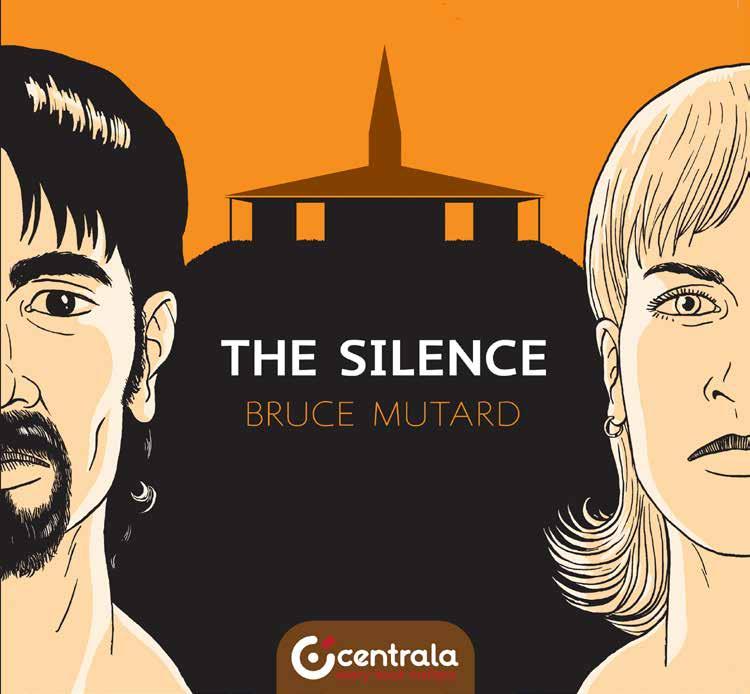
The Silence
Bruce Mutard
A provocative graphic novel about the nature of art, told through the eyes of Choosy McBride, gallery manager and curator, and her artist partner, Dmitri. When Choosy McBride discovers an extraordinary artwork she is determined to track down the unknown artist. With her partner Dmitri, an artist wrestling with his own creative demons, she follows the trail to an exhibition at an enigmatic gallery in Northern Queensland, but the creator of the mysterious artworks remains elusive. Increasingly frustrated, and resolved on a dramatic course of action, Choosy insists they make a final visit to the gallery. But will the truth revealed there be what either of them expect?
The action is in the emotions. There is anger, politeness, selfdoubt, and white sandy beaches. A beautiful graphic novel that explores the nature and culture of art.
Bernard Caleo
Series Release Extent Binding Illustrations ISBN Price Life October 2021 188 pp; 200 x 180 mm HC full-colour 978-1-912278-29-9 18 GBP / 25 USD / 22 EUR
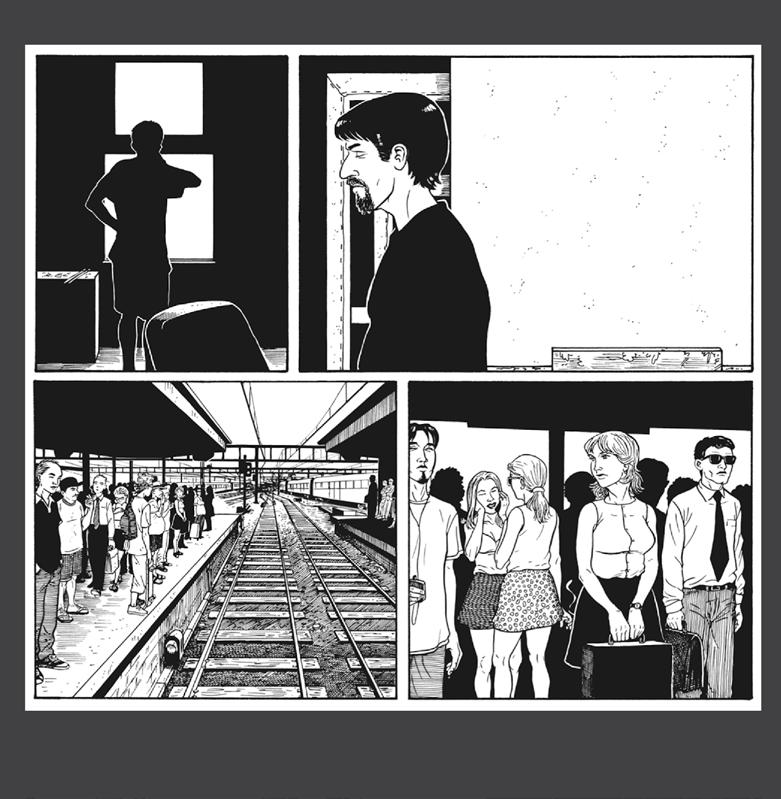
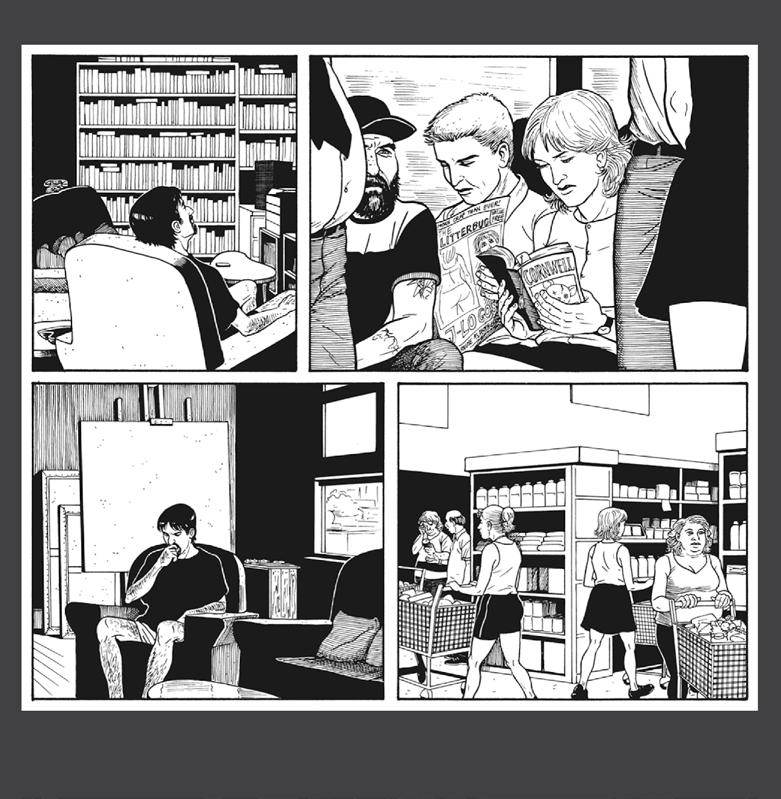
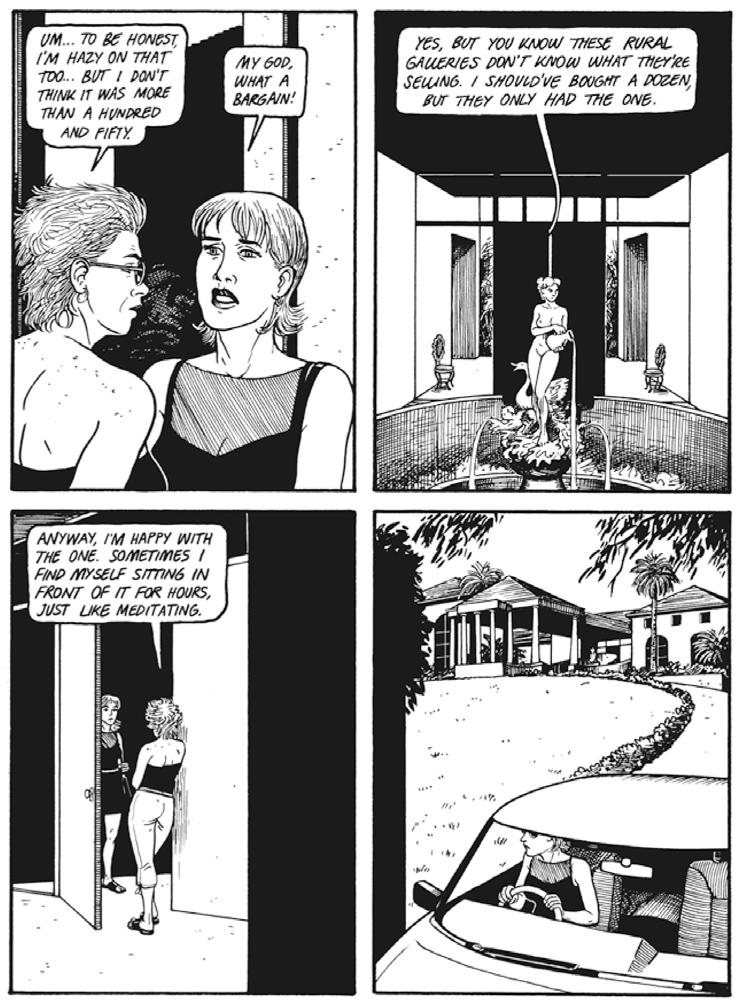
Bruce Mutard is a comics maker, publisher and researcher. His graphic novels include “The Sacrifice”, “The Silence”, “A Mind of Love”, “The Bunker” and “Post Traumatic”. His latest graphic novel “Bully Me”, was published as “Souffre Douleur” in France in 2019. He is currently a PhD candidate at Edith Cowan University with his thesis “The Erotics of Comics” and makes comics as scholarship. He is director of the Comic Arts Awards of Australia and editor/publisher of the Australian Comic Annual. He has been a curator and program director at the Perth Comic Arts Festival.


It’s Good We Talked About That
Julia Bernhard
”It’s Good We Talked About That” is a manifesto on lethargy, depression and failed communication. It’s a world populated by a spiteful grandma, a doting diarrhoeal pug and a passive-aggressive house plant. Anyone who doesn’t know what do with their life will, for better or worse, likely see themselves in these pages.
Spanning ten ludicrous and laconic slices of life, Julia Bernhard reveals the world of her protagonist: a collection of everyday, caustic conversations and monologues about art projects, affairs, relationship dramas and procrastination.
The title is pure irony, because although the book contains much talking, including about highly personal matters, it seems that no one is properly listening. Over a diverse set of episodes, Julia Bernhard places her protagonist across from people who should, theoretically, be interested in her life, such as her grandma, a friend, a lover... However, no interest in her as a person is to be found. Instead, she’s lambasted with hollow words and ascriptions that make for a discomforting read.
The jury of Max & Moritz Prize 2020
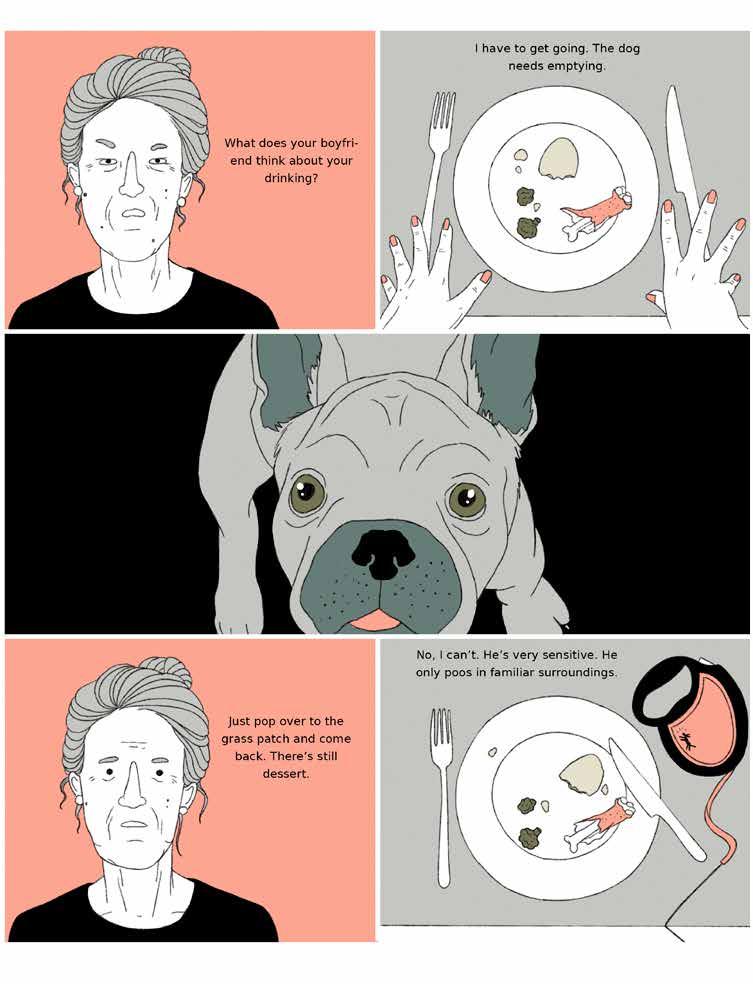


Julia Bernhard born in Aschaffenburg in 1992, studied illustration at Mainz University of Applied Sciences. She lives and works as a freelance comic artist and illustrator in Berlin. Her work has appeared in publications such as the New Yorker, Popular Science Magazine and in various publishing houses. Her comic debut was awarded the Max und Moritz Prize and the Rudolph Dirks Award 2020.











